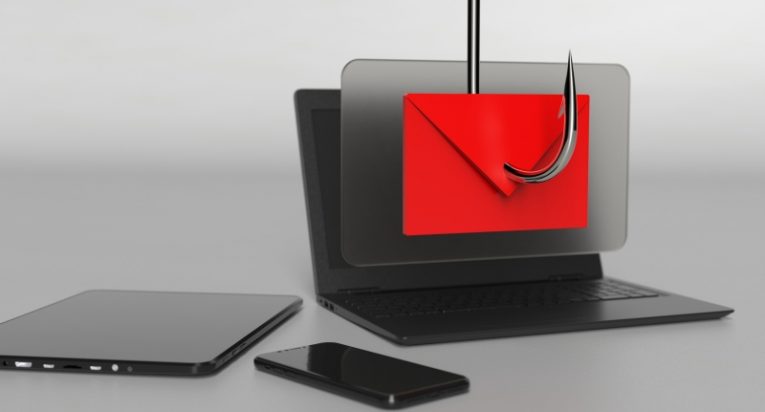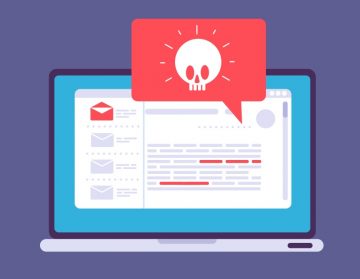Full Storage Notification Email Scam Urges You To Take Action

Table of Contents
What Is the “Full Storage Notification” Email Scam?
The "Full Storage Notification" email scam is a deceptive message crafted to trick recipients into believing their email inbox has exceeded its storage capacity. The scam exploits users' concerns about service interruptions, urging them to take immediate action to avoid losing access to their emails. While the email appears urgent, it is entirely fraudulent and aims to direct unsuspecting recipients to a phishing website.
The Phishing Trap Behind the Message
The email, often titled something like "Free up space!" (though the subject line may vary), instructs recipients to click a "Clear Cache" button. This button redirects users to a counterfeit website designed to mimic the login page of their email provider. Once users enter their credentials, the information is captured and sent to scammers. The goal is clear: to steal login details and gain unauthorized access to the victim's email account.
Here's what the fraudulent message looks like:
Subject: Free up space!
Full Storage Notification
XXXXXXX
You have used up all your storage capacity. To prevent message from being clutered and deleted, you must clear the cache immediately to free up space.
Clear Cache
Note: Action is required before 26-11-2024.
XXXXXXXX 2024 Services.
The Risks of Stolen Email Credentials
When scammers gain access to an email account, the potential misuse is wide-ranging. The account may be used to impersonate the victim, allowing scammers to send requests for loans or donations to the victim's contacts, promote additional scams, or distribute malicious links and files.
In more severe cases, email accounts serve as entry points for further exploitation. Credentials for financial services, social media platforms, and other sensitive accounts linked to the email could be compromised. Scammers may perform fraudulent transactions, make unauthorized purchases, or hijack the victim's online identity for profit.
The Broader Implications of Phishing Scams
Phishing scams like the "Full Storage Notification" email have far-reaching consequences. Victims may face privacy violations, financial losses, and even identity theft. Beyond stolen credentials, these scams often seek other sensitive information, such as personally identifiable details or financial data. The aftermath of such breaches can be complex, requiring victims to rebuild their digital security and potentially recover lost funds.
How Scammers Make Phishing Emails Believable
While phishing emails have a reputation for being poorly written or riddled with errors, many scams are becoming more sophisticated. Modern phishing attempts are often well-designed, mirroring the style and branding of legitimate service providers or organizations. This makes it harder for users to distinguish fake emails from genuine ones, especially when under the pressure of an urgent-sounding message.
Spam Campaigns and Their Role in Spreading Threats
Phishing scams are not limited to stealing credentials; they are often part of broader spam campaigns that distribute malicious files. These attachments, which may come in formats like ZIP archives, executable files, or Office documents, are designed to infect the recipient's device. Some require user interaction, such as enabling macros in Office files or clicking embedded links, to initiate their malicious activity.
Once a device is infected, additional threats may be downloaded or installed, further compromising the victim's system. These infections can range from data-stealing tools to more invasive software designed to lock files or monitor activity.
Tips for Avoiding Email Scams
Users can protect themselves by being cautious when dealing with unsolicited emails, especially those with unexpected attachments or links. It's essential to verify the authenticity of the sender before interacting with such messages. For instance, users can contact the purported sender directly through official channels to confirm the legitimacy of the email.
Avoiding downloads from unverified sources is another critical step in reducing exposure to scams and threats. Keeping all software updated through official methods further enhances security by addressing vulnerabilities that scammers often exploit.
Staying Vigilant Against Online Scams
While phishing emails like the "Full Storage Notification" scam can be convincing, users can protect themselves with a proactive approach to online safety. Carefully scrutinizing incoming messages, avoiding interactions with suspicious content, and maintaining robust account security through strong, unique passwords are vital practices.
Recognizing the signs of phishing attempts—such as generic greetings, misspelled domains, or unsolicited requests for personal information—can help users spot scams before falling victim. With vigilance and informed decision-making, users can navigate the digital landscape more safely and confidently.







